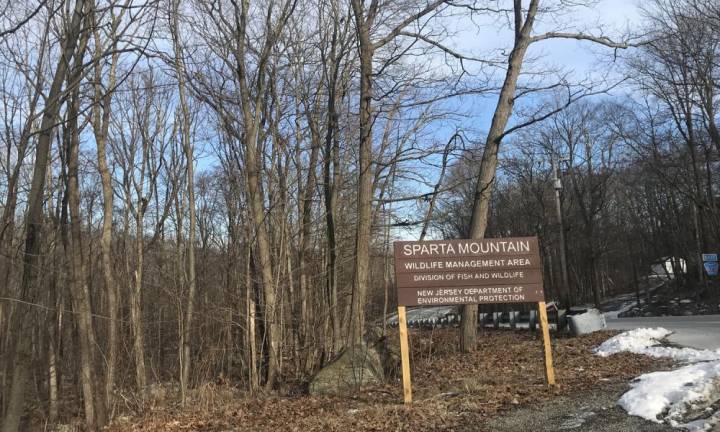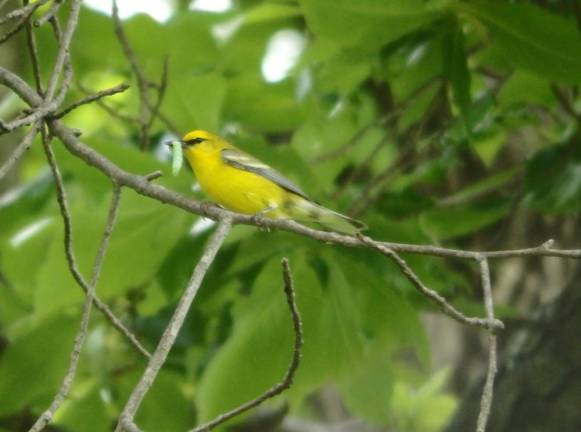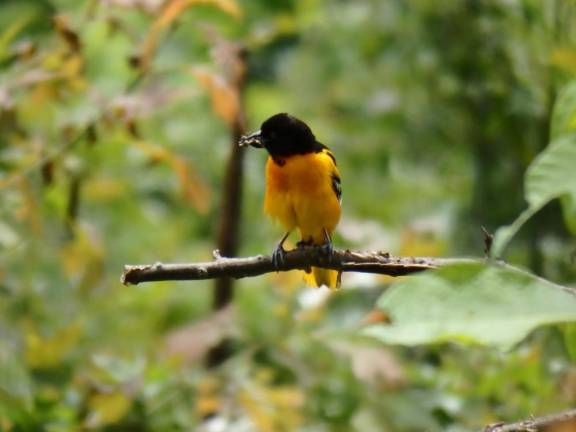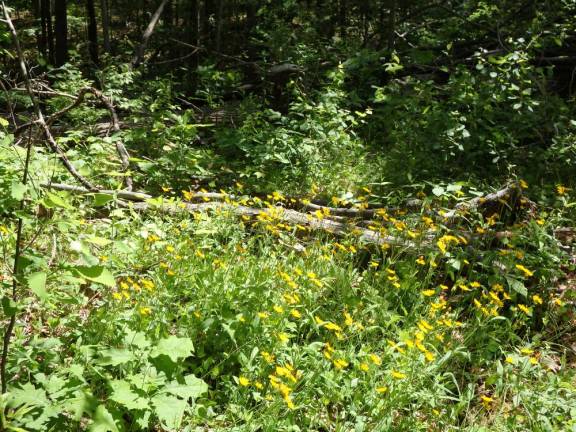Sparta Mountain: Different perspectives, same objective?
Sparta. With plans to begin logging Stand 8 of the Sparta Mountain Wildlife Management Area moving forward, state Department of Environmental Protection officials say different stakeholders may have different perspectives, but they ultimately share the same objective.




When it comes to the state Department of Environmental Protection’s plans for Sparta Mountain, John Cecil, of New Jersey Audubon, said it’s important to keep one particular caveat in mind.
“This is a wildlife management area,” he said. “So folks are protesting that these activities are being conducted on the property, but the intention of the property is to manage it for wildlife.”
On Feb. 17, the state Division of Fish and Wildlife (DFW), which operates within the DEP, is scheduled to begin logging activities in the area known as Stand 8 of the Sparta Mountain Wildlife Management Area.
According to the division, the aim of the activities is to restore the young oak-hickory forest, which requires opening the forest canopy to allow for the growth of a variety of species, including young oak and hickory trees, blackberries, sedges and a variety of other shrubs and saplings.
In his role of vice president of stewardship for the conservation non-profit, Cecil said he’s seen several alarming reports on wildlife populations recently.
“We’re losing the rare, threatened and endangered species, but also wildlife populations overall, even the more common species, have decreased in their abundance substantially over the last 50, 60, 75 years,” he said. “We’ve had reports on bird abundance that say we’ve lost 3-billion birds (in North America) since the late ‘60s, early ‘70s.”
Opening the canopy will create breeding and foraging habitat for more than 60 different bird species, the division said, including the endangered Golden-winged Warbler.
All logging activities will cease prior to April 1 but may resume after Nov. 15, and approximately 9.1 acres will be treated, according to the division.
DEP Chief of Staff Shawn LaTourette said the department has tried to work with interested parties to come up with a plan that is palatable for everyone.
“I think we have a difference of opinion, relative to how we best manage wildlife on Sparta Mountain but I don’t think it’s a difference of heart,” he said. “We’re all trying to achieve the right balance for the environment and for the species that are under our stewardship.”
Cecil agreed with LaTourette’s assessment.
“I think the DEP has gone pretty far out in terms of extending the agency to listen to stakeholders and to take input,” he said. “There have been a lot of in-the-field visits with the Highlands Coalition, Friends of Sparta Mountain and New Jersey Forest Watch folks to really try to listen to those voices and to see if the projects can be designed in a way where, if folks aren’t necessarily supportive, they’re not so offended by them.”
DFW Director David Golden said that currently the age of forests throughout the state is somewhat lopsided.
“We feel that young forest habitat is really underrepresented in New Jersey right now,” he said. “We’ve done a really great job with preservation and protection, and we have a lot of mature forests, but there are these very specialized species with very narrow habitat niches that require young forests, so we’re actively trying to provide for them.”
According to Golden, the neo-tropical migratory Golden-winged Warbler and the Ruffed Grouse are two such niche species that can only breed in young forests.
Whenever DEP is preparing to remove trees from a section of the wildlife management area, it puts the project out to bid, Golden said, and pays private contractors to come in to do the work.
“I would say most often, because these are small cuts, (the wood harvested) typically goes for homeowner firewood,” he said. “The trees that we are identifying and marking to be removed to create the young forest habitat, they’re not the trees that you would think about for any type of lumber industry.”
According to Cecil, in parts of the wildlife management area where trees have been taken out, vegetation is already starting to grow back and wildlife populations are rebounding.
“There are folks who speculated that the project would fail, that we wouldn’t get the regeneration, that deer would eat everything and it would be overwhelmed with invasive species,” he said. “We’re seeing the young forest birds come back and occupy these areas where the habitat’s been created. We also see birds that you would classically find in older forests utilizing these young forest habitats, and they do that because it’s so resource rich.”
In a post on its Facebook page, Friends of Sparta Mountain associated with NJ Forest Watch said the group recommended girdling trees to DEP and not using heavy machinery to take them out. It does not support the DFW’s plans for Stand 8.
Golden said that girdling – a process where a ring is cut around the entire tree and it dies standing up – has a time and a place, but is usually used in situations involving fewer trees.
“It creates a public hazard to have 10 acres of dead standing trees in an area where we’re encouraging public access,” he said. “It also doesn’t work because we want to remove some of that biomass off the site so the young forest can generate.”
Jeff Tittel, director of the New Jersey Sierra Club, said that the logging will have a major impact on the region’s waterways.
“The forests in the Highlands act as natural filters and sponges, and the canopy protects the clean drinking water for 6 million people,” he said. “Opening up this forest to logging will cause more stormwater runoff, more silt and pollution in our waterways and will release more carbon.”
Silvia Solaun, executive director of New Jersey Forest Watch, said the Stand 8 project should not be permitted to go forward.
“Logging or deforestation should not be allowed in areas where we get our clean drinking water from!” she said in an email.
Cecil said that the Highlands Act was put into place to control and restrain development, with forestry being an allowable practice.
“It’s acknowledged that forestry is an important tool to manage forest resources, can be important for the economics of the region, and can be done in a way that doesn’t negatively impact water quality and water resources if you follow best practices and sustainability standards,” he said.
Friends of Sparta Mountain and New Jersey Forest Watch are calling on members of the public to contact Gov. Phil Murphy, New Jersey Department of Environmental Protection Commissioner Catherine McCabe and NJ DEP Assistant Commissioner for Natural and Historic Resources Ray Bukowski to voice opposition for the upcoming project.
Bukowski said feedback from the public is welcomed.
“I completely appreciate the push back and I think the debate leads to a much better dynamic where we make greater informed decisions about land management,” he said. “Rather than do or don’t, we would really rather have a debate about when and how.”